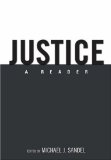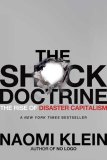Summary | Excerpt | Reviews | Beyond the book | Read-Alikes | Genres & Themes | Author Bio

The Price of America's Empire
by Niall FergusonNiall Ferguson brings his renowned historical and economic depth of field to bear on a bold and sweeping reckoning with America's imperial status and its consequences.
Is America an empire? Certainly not, according to our government. Despite the conquest of two sovereign states in as many years, despite the presence of more than 750 military installations in two thirds of the world’s countries and despite his stated intention "to extend the benefits of freedom...to every corner of the world," George W. Bush maintains that "America has never been an empire." "We don’t seek empires," insists Defense Secretary Rumsfeld. "We’re not imperialistic."
Nonsense, says Niall Ferguson. In Colossus he argues that in both military and economic terms America is nothing less than the most powerful empire the world has ever seen. Just like the British Empire a century ago, the United States aspires to globalize free markets, the rule of law, and representative government. In theory it’s a good project, says Ferguson. Yet Americans shy away from the long-term commitments of manpower and money that are indispensable if rogue regimes and failed states really are to be changed for the better. Ours, he argues, is an empire with an attention deficit disorder, imposing ever more unrealistic timescales on its overseas interventions. Worse, it’s an empire in denial—a hyperpower that simply refuses to admit the scale of its global responsibilities. And the negative consequences will be felt at home as well as abroad. In an alarmingly persuasive final chapter Ferguson warns that this chronic myopia also applies to our domestic responsibilities. When overstretch comes, he warns, it will come from within—and it will reveal that more than just the feet of the American colossus is made of clay.
This is a not a light-weight, quick read - but it is well worth it nonetheless. Even if you don't feel compelled to buy the book itself, the next time you're in a bookstore I encourage you to invest 15 minutes into reading the introduction in full (part of which is excerpted at BookBrowse), because the intro outlines the arguments that Ferguson details more fully in the remainder of 'Colossus' and is a thought provoking read in its own right...continued
Full Review
(333 words)
This review is available to non-members for a limited time. For full access,
become a member today.
(Reviewed by BookBrowse Review Team).
Niall Ferguson is Herzog Professor of Financial History at the Stern
Business School, New York University, and Senior Research Fellow at Jesus
College, Oxford University. Born in Glasgow, Scotland in 1964, he lives in
New York and Oxfordshire, England.
A partial bibliography:
This "beyond the book" feature is available to non-members for a limited time. Join today for full access.

If you liked Colossus, try these:

by Michael J. Sandel
Published 2010
Michael J. Sandel's "Justice" course is one of the most popular and influential at Harvard. Up to a thousand students pack the campus theater to hear Sandel relate the big questions of political philosophy to the most vexing issues of the day. Justice offers readers the same exhilarating journey that captivates Harvard students.

by Naomi Klein
Published 2008
The bestselling author of No Logo exposes the rise of "disaster capitalism" and destroys the myth of the global "free market".
When men are not regretting that life is so short, they are doing something to kill time.
Click Here to find out who said this, as well as discovering other famous literary quotes!